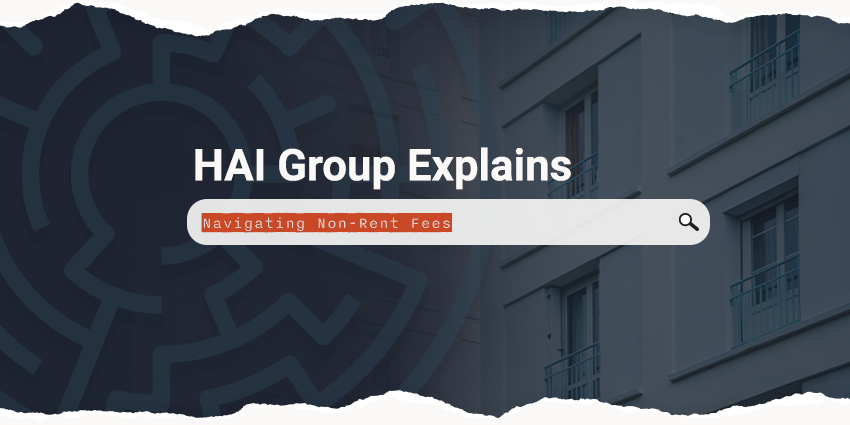So long as a housing organization has employees, it is likely to face some type of employment practice liability exposure. Fortunately, there are ways an organization can mitigate this type of loss. The first step is understanding the types of claims that can arise if your organization doesn't abide by the applicable state and federal employment laws.
The U.S. Department of Labor and the U.S. Equal Employment Opportunity Commission administer and enforce more than 180 federal employment laws. Additional enforcement agencies include the National Labor Relations Board and your state-specific labor office.
Common Employment Liability Claims
The following are common employment claims (in no particular order). We suggest confirming coverage for specific claims with your insurance carrier.
1. Wrongful discipline/termination. This can include claims such as breach of contract (express and implied), the covenant of good
faith and fair dealing, and public policy (whistleblower actions).
2. Failure to employ or promote. This occurs when the employee alleges that the employer failed to employ or promote based
on illegal discrimination.
3. Mismanagement of employee benefits plans. These claims occur when an employer breaches fiduciary duties by mismanaging plans such as 401(k), profit sharing, pensions, and health care.
4. Wage and hour claims (Fair Labor Standards Act). Claims related to an employer failing to pay wages owed to an employee.
5. Class actions. These claims are lawsuits filed on behalf of numerous plaintiffs with similar claims. For example, the U.S. Department of
Labor lawsuit seeks to recover back wages for any current or former employees who have worked for a contractor since
October 2015.
6. Family and Medical Leave Act (FMLA) violations. Claims related to an employer interfering with an employee who is
trying to take leave as well as retaliation for taking leave.
7. Whistleblower actions/retaliation. Addresses claims of an employer punishing an employee based on a protected activity
(e.g., reporting a safety concern, abuse of authority, or a legal violation in the workplace).
8. At-will employment. Although employees may be at-will, there can be exceptions “to the at-will presumption,” according
to the National Conference of State Legislatures. These exceptions may include public policy, implied contract, and the
implied covenant of good faith.
9. Tort claims. These claims can occur when the claimant seeks compensation for someone else’s wrongdoing, resulting in
property loss, personal injury, or death. Injuries can be physical, emotional, psychological, or financial. Examples include
defamation, negligence, promissory estoppel, harassment/sexual harassment, civil assault and battery, tortious interference with contract, invasion of privacy, and wrongful infliction of emotional distress.
10. Failure to meet reasonable accommodations. These claims can arise from allegations of an employer failing to meet a
reasonable accommodation in violation of the Americans with Disabilities Act.
11. Illegal discrimination (Equal Employment Opportunity Commission). These claims arise from alleged unfair treatment due to race,
color, religion, sex (including pregnancy, gender identity, and sexual orientation), national origin, age (40 or older), disability, or genetic information.
Insurance coverage for employment claims
The following types of insurance may offer organizations some protection against employment claims. Always consult
with your insurance representative to understand the coverage offered by your policy and to determine whether you have
adequate coverage.
-
Employment Practices Liability Insurance (EPLI)
EPLI may protect against claims by workers who allege an employer violated their rights as employees. EPLI can protect against various types of employee claims and may cover claims of discrimination, sexual harassment, wrongful termination, and breach of an employment contract.
-
Workers’ Compensation
Workers’ compensation insurance may help protect businesses and their employees from financial loss if an individual suffers a work-related injury or becomes sick due to a work-related cause. Almost all states require employers to provide workers’ compensation coverage to their employees. In a few states, employers may have the option not to provide these benefits; however, doing so may increase their exposure and liability.
Although workers’ compensation insurance may cover most employee injuries, there can be exceptions, for example, if an employee is intentionally injured or if the employer has insufficient coverage. Examples of benefits regulated by state law may include:
- reasonable and necessary medical expenses;
- disability income benefits when an employee is unable to work;
- death benefits to the surviving family; and
- rehabilitation benefits.
Interested in working with HAI Group to secure insurance coverage for multifamily employment claims? Have questions? Our Account Services team is ready to assist you.
This article is for general information only. HAI Group makes no representation or warranty about the accuracy or applicability of this information for any particular use or circumstance. Your use of this information is at your own discretion and risk. HAI Group and any author or contributor identified herein assume no responsibility for your use of this information. You should consult with your attorney or subject matter advisor before adopting any risk management strategy or policy.






